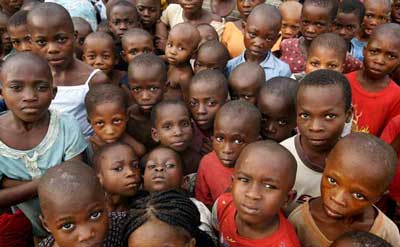
The Multiple Indicator Cluster Survey MICS 6 says 65 percent of North-west Children are multi-dimensionaly poor, with Jigawa state ranking highest at 73 percent according to 2021 survey.
This was disclosed in Dutse, the Jigawa state capital during the launch of MICS 6 report organized by Jigawa state Ministry of Finance and Economic Planning in collaboration with UNICEF field office Kano.
In her speech at the occasion, the Chief UNICEF Kano Office Mrs Rahama Mohammed Farah said, the report is a source of concern as it shows the critical situation children are living in and how they are also facing uncertain future.
She explained that, the survey carried out in 2021 and the results released in August 2022 shows that, 73.9 percent of children in Jigawa state are multi- dimensionally poor.
According to her, the high rate shows a striking reality that children’s rights in Jigawa state are not being fulfilled.
Mrs. Rahama Farah said, most children in the state are deprived of their basic rights for survival, protection and development.
She pointed out that, the MICS results 2021 for Jigawa state revealed that the state has made significant progress in some indicators such as child immunization coverage from 2011 to 2021, thereby reducing under five mortality by 37 percent.
According to her, this indeed is a substantial progress that need to be continued and sustained.
“However, there are still indicators that are either did not improve (such as the case of child birth registration) Child nutrition”.
She said, in education, 44 percent of children that are supposed to be in primary school are still out of school, while learning foundation skill outcome is 2 percent.
“Today’s launching of the MICS in Jigawa is an urgent call for action, this an emergency call for policy makers, community leaders, civil society organizations, politicians, the state parliamentarians and international actors across all sectors to put the most need efforts and design innovative strategies to improve the current human development situation in the state specially for improving the wellbeing of children and women who suffer the most”
Radio Nigeria observed that, most of Jigawa state stakeholders that attended the meeting were not happy with the result, some rejected it while some disputed its conformity with the reality on ground.
A stakeholder pointed out that, In the last twenty years many efforts and interventions were made, such as construction of over 4,000 Km access roads, provision of one functional hospital at every political ward, as well as construction and upgrading of general and special hospitals.
“During this period it was confirmed that, the jigawa state boost the agricultural sector, thousands of women and youth were given empowerment, but how comes our poverty indicator remain the same, this is unacceptable”
The occasion was attended by political leaders, civil servants, civil society organizations, community leaders and groups, traditional and religious leaders as well as donor partners among others.
Usman Mohammed Zaria
